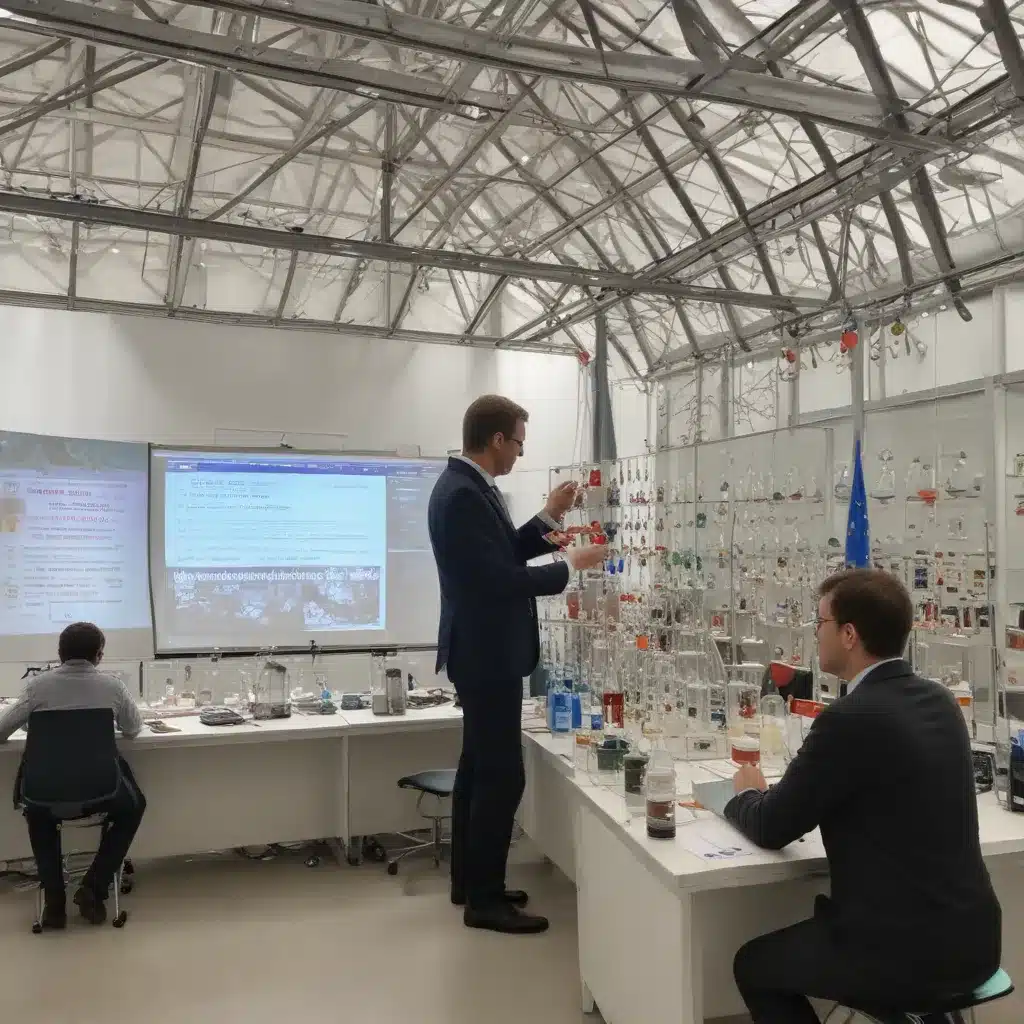
Exploring Research in Chemical Education at the 16th ECRICE
Empowering Educators to Integrate Green Chemistry into the Curriculum
The field of chemistry plays a vital role in addressing the Sustainable Development Goals outlined by the United Nations. As the global demand for greener, more sustainable chemicals and materials grows, the chemistry education system must shift to meet this demand. Green chemistry education is essential in training the next generation of scientists and professionals with the skills to address hazards and mitigate impacts at the earliest stages of the product lifecycle.
Beyond Benign, a non-profit organization dedicated to green chemistry education, has been leading initiatives aimed at empowering educators to transform chemistry education for a sustainable future. Through the Green Chemistry Commitment (GCC) program and the Green Chemistry Teaching and Learning Community (GCTLC) platform, Beyond Benign is working to scale the adoption of green chemistry within higher education systems globally.
The Green Chemistry Commitment (GCC) Program
The Green Chemistry Commitment (GCC) is an institutional commitment towards including green chemistry in college-level chemistry programs. By signing the GCC, institutions pledge to integrate green chemistry principles and practices throughout their curriculum, from general chemistry to advanced electives. Beyond Benign provides support to GCC signatory institutions, offering access to a wealth of educational resources, professional development opportunities, and a community of like-minded educators.
“The GCC program has been instrumental in helping us transform our chemistry curriculum,” shares Dr. Monica Nyansa, a faculty member at Michigan Technological University. “The resources and community we’ve gained access to have empowered us to make significant strides in educating our students on the importance of green chemistry and sustainability.”
The Green Chemistry Teaching and Learning Community (GCTLC)
The Green Chemistry Teaching and Learning Community (GCTLC) is a virtual space for higher education faculty, lecturers, and K-12 teachers to find and share resources, participate in peer-to-peer learning, and connect with a global network of educators. The mission of the GCTLC is to advance the integration of green chemistry across education systems worldwide, equipping the next generation with the knowledge and skills to address sustainability challenges.
The GCTLC’s open-access, peer-reviewed library of over 190 curriculum resources is a standout feature of the platform. This collection includes greener lab experiments, course modules, lecture slides, assessments, and more, all available for educators to access and adapt for their own teaching needs.
“The GCTLC has been a game-changer for me,” says Jonathon Moir, a chemistry professor at the University of Toronto. “The ability to connect with a global community of green chemistry educators and access this curated library of resources has streamlined my course development and allowed me to incorporate more sustainable practices into my teaching.”
Empowering Educators through Professional Development
Beyond Benign’s commitment to supporting educators extends beyond the GCC and GCTLC programs. The organization also offers a range of professional development opportunities, including workshops, webinars, and online courses, to help instructors at all levels build their expertise in green chemistry and sustainability.
“The professional development sessions hosted by Beyond Benign have been invaluable,” explains Amy Cannon, Executive Director of Beyond Benign. “They provide a platform for educators to learn from experts, share best practices, and develop the skills necessary to effectively integrate green chemistry into their classrooms and labs.”
Fostering Inclusive Communities of Practice
Recognizing the importance of diversity, equity, and inclusion in driving transformative change, Beyond Benign has woven these principles throughout the development and sustenance of the GCTLC platform. The organization has implemented strategies to ensure the online community fosters a sense of belonging for all users, including drafting a Code of Conduct, creating equitable and accessible community spaces, and curating resources that decolonize and diversify green chemistry education.
“Inclusive communities of practice are essential for the widespread adoption of green chemistry education,” says Nimrat Obhi, Beyond Benign’s Director of Global Engagement. “By prioritizing diversity, equity, and respect, we aim to empower educators from all backgrounds to become agents of change in transforming chemistry education for a sustainable future.”
Exploring Opportunities at the 16th ECRICE
The 16th European Conference on Research in Chemical Education (ECRICE), taking place in Lisbon, Portugal, from September 5-7, 2024, will provide an excellent platform for educators to engage with the latest developments in green chemistry education. The conference’s theme, “Chemical Education for Sustainable Development: Empowering Education Communities,” aligns closely with the mission of Beyond Benign and its flagship programs.
“ECRICE 24 is an important event to disseminate new research and developments in chemical education,” explains Isabel Ribau, the conference chair. “It is essential to examine how we can facilitate the acquisition of knowledge and trigger student engagement through the lens of sustainability, keeping the 17 SDGs in mind.”
The conference will feature a range of sessions and workshops focused on integrating green chemistry and sustainability principles into the curriculum, from classroom teaching modules to laboratory experiments and educational research. Educators are encouraged to submit abstracts and present their work, contributing to the growing global movement towards sustainable chemistry education.
For those interested in learning more about the GCC program, the GCTLC platform, or Beyond Benign’s professional development offerings, the conference will also host dedicated sessions and networking opportunities. Attendees can connect with Beyond Benign’s team members and representatives from GCC signatory institutions to explore ways to incorporate green chemistry into their own teaching practices.
Stanley Park High School is excited to see the transformative work happening in the field of chemical education and encourages all of its science educators to explore the resources and opportunities available through Beyond Benign and the upcoming 16th ECRICE. By empowering our teachers to integrate green chemistry principles into the curriculum, we can equip our students with the knowledge and skills to address the pressing sustainability challenges of our time.
For more information on the 16th ECRICE and to register for the conference, please visit the event website at https://www.stanleyparkhigh.co.uk/ecrice2024. To learn more about Beyond Benign and its initiatives, explore the organization’s website at https://www.beyondbenign.org.

